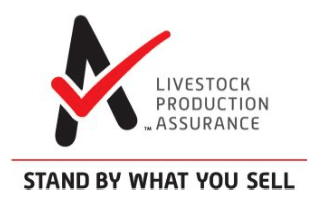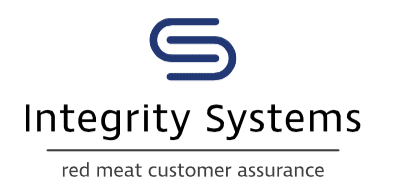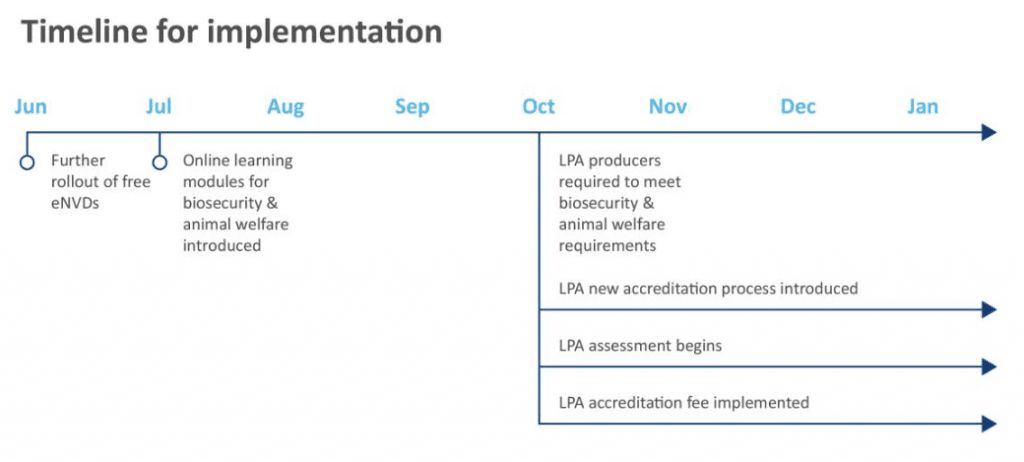 SIGNIFICANT changes will be introduced to the Livestock Production Assurance (LPA) system in October this year.
SIGNIFICANT changes will be introduced to the Livestock Production Assurance (LPA) system in October this year.
MLA’s Integrity Systems Company says the changes are designed to strengthen the Australian red meat industry’s global reputation as a world leader in food safety, integrity and traceability.
Changes producers need to be aware of include:
- On-farm biosecurity and animal welfare practices will be included in the LPA program;
- LPA accredited producers will need to complete online learning modules and a short assessment to test their knowledge every three years;
- As part of a new funding model, producers will pay $60 for LPA accreditation every three years;
- The changes coincide with the further roll-out of free electronic National Vendor Declarations (eNVD), replacing the need to buy hard copy NVD books for $40.
The changes have been announced by the new Integrity Systems Company, a subsidiary of Meat & Livestock Australia (MLA) which was launched last month to manage all of Australia’s livestock quality assurance programs – (LPA, National Vendor Declarations (NVDs) and the National Livestock Identification System (NLIS)) – in a single structure.
The LPA, NVDs and the NLIS are key on-farm components of the Australian red meat industry’s food safety assurance system. In gaining LPA accreditation livestock producers commit to best practice on-farm management which meets the stringent requirements of Australia’s wide array of export markets.
The LPA was launched as a voluntary system, but in practical terms, producers who do not gain LPA accreditation are severely restricted in their livestock selling options. The majority of meat processors require livestock to be sourced from LPA-accredited properties, while it is also a requirement that LPA producers source livestock from other LPA accredited producers.
From October, producers will be required to renew their LPA accreditation once every three years, and will be notified by email or post when their existing accreditation is due for renewal.
Once notified, producers will have two months in which to renew.
New fee
A new $60 (plus GST) fee will be charged every three years to remain in the LPA program.
The new fee replaces the current LPA model which is funded via the sale of hard copy NVD books (costing $40 each).
Producers will be able to now access LPA electronic NVDs free of charge.
The new $60 fee will supplement levy investment to ensure ongoing resourcing for, and future improvements to, the LPA program.
Where there is more than one LPA accredited producer operating on a Property Identification Code (PIC), the fee will apply to each of those producers.
Producers with more than one PIC will be required to complete the assessment and make the fee payment for each of those PICs.
Regular online assessment
Traditionally, producers have needed to recommit to LPA every 12 months.
This is being changed to an accreditation renewal once every three years, beginning on 1 October 2017, and will now include online learning modules and a short assessment to test producers’ knowledge of program requirements.
PIC owners will be notified by email or post two months before it is time to renew their accreditation.
This has traditionally happened annually but will now be done once every three years, on the anniversary of their original sign-up date.
Animal welfare requirements
LPA accredited producers will have to be able to demonstrate from October they have implemented on-farm systems to ensure handling of livestock is consistent with the Australian Animal Welfare Standards and Guidelines for cattle, sheep and goats.
They can do this by ensuring:
- A current copy of the Standards and Guidelines for cattle, sheep and/or goats (as applicable) is accessible as a reference and people involved with husbandry of livestock are familiar with the content.
- People responsible for the management of livestock handling have successfully completed training in relation to the Standards and Guidelines through LPA Learning or equivalent training.
- People responsible for the management of livestock handling have trained their staff (where relevant) in a manner consistent with the Standards and Guidelines.
Strengthening Australia’s global point of difference
Integrity Systems Company CEO Dr Jane Weatherley said the LPA system gives Australia a key advantage and point of difference against international competitors.
“The enhancements announced today are important to strengthen our promise to consumers and stay ahead of our competitors,” Dr Weatherley said.
“Australian red meat producers are renowned for delivering quality red meat into more than 100 international markets and our industry is well known for its food safety and traceability.
“This reputation is underpinned by our world leading integrity systems, including the LPA program.”
To support the program’s continual improvement, from 1 October producers will be required to pay $60 per LPA accreditation
“The new fee structure has been developed by industry and will ensure a positive and secure future for the LPA program. By having a renewed process of accreditation, producers will better understand their on-farm responsibilities and the crucial role they play in driving the growth and prosperity of our industry.”
Red Meat Advisory Council chair Don Mackay said broadening the LPA program to include biosecurity and animal welfare will serve to reinforce the system.
“Australian red meat producers are committed to achieving high animal welfare standards and understand the intrinsic link between high welfare and high productivity, the importance of Australia’s enviable biosecurity status and the value of the LPA program,” Mr Mackay said.
“Integrating these practices – some of which are already required under legislation – into the LPA program will significantly strengthen our pledge to our customers, and protect the industry for the future,” Mr Mackay says.
Producers will be supported in preparing for the assessment – including the biosecurity and animal welfare requirements – by LPA Learning, an online education tool developed by MLA.
Producers can access background information on all aspects of Australia’s red meat integrity system at the Integrity Hub, www.mla.com.au/integrity
Renewing the accreditation of the 215,000 PICs currently involved in LPA will be a gradual process, with owners of those PICs expected to have completed assessments and renewed accreditation by 2020.
Beef Central has been told that proceeds raised by the new $60 fee will be reinvested in the program through support and tools for producers such as education packages and technology upgrades, a strengthened auditing capacity, maintenance of the LPA helpline, and continued integration of system databases.
Producers will only have to recommit through the accreditation process once every three years – rather than the current annual process.
Paying the fee and completing the online assessment will be part of the LPA accreditation process from 1 October.
If producers choose not to be accredited under the LPA program, they will no longer have access to the LPA NVD which carries the LPA logo, and supply chains may not accept their livestock, or may pay a reduced price for it.







HAVE YOUR SAY